Oil fuels your cars, and your bikes. It powers domestic and international transport through trucks, ships, and airplanes. It helps in generating electricity for homes, offices, and industries.
In nutshell, we can say, the economic growth and development of a country cannot happen without oil.
Though oil is an extremely reliable source of power, it has its disadvantages. First of all, it is a scarce resource, and one day it will surely run out. Secondly, it costs a lot of money for countries that don’t have their own oil reserves.
In a country like India, about 80 percent of the oil is imported which is a huge financial burden for the economy. More than $100 billion was spent two years back just on the oil imports.
Not to ignore the fact that it releases harmful emissions (greenhouse gases along with particulate matter) into the atmosphere when burning – impacting our well-being and the health of the planet, by causing global warming.
That’s where biofuel comes in, providing an excellent renewable alternative to petrol and diesel. Traditionally biofuel was made from agricultural plants like ethanol which is made from sugarcane or corn.
With advancements in technology, many of the new age biofuels are produced using organic waste like used cooking vegetable oil, food waste, agriculture waste, and crop stubble (burning of the last one is the major reason for Delhi pollution).
McDonald’s, the global fast-food chain, in some of its restaurants like Netherland, Dubai – started to turn its used french fry oil into low carbon diesel fuel.
In spite of the advantages of biofuel, there is largely a lack of awareness among the people. It is not just with the consumer, even the manufacturers of biofuel are uncertain as to where they can procure the raw materials for making biofuel. The farmers, restaurant owners, and furniture businesses who have the supplies throw or burn them because they don’t know any better use for them.
We had a very enlightening conversation with Kishan Karunakaran, the CEO of Buyofuel.
Buyofuel is a new-age technology startup engaged in creating an ecosystem for the biofuel market. The company connects the suppliers of raw materials with manufacturers, and suppliers get an excellent price for something which was considered waste. The manufacturers get the necessary resources for making the biofuel and are able to get the marketplace where they can sell the green fuel to large-scale consumers.
In a short span of time, Buyofuel which started in the southern states of India is able to generate good traction. Kishan, a mechanical engineer, with many years of experience in the sector is at the helm of affairs.
Here is an edited version/excerpts of our conversation with Kishan about biofuel, different kinds of biofuels, advantages of biofuel, the industry, his company, plans, and the response thus far. For the full discussion please watch the video.
Can you start by demystifying biofuel?
All fossil fuels that we use whether it be LPG in our houses, diesel in our cars, petrol in our bikes, or the coal that we use for power generation all of these have equivalent biofuels. That’s the beauty of biofuels, they can fit into these applications without any change in the engine.
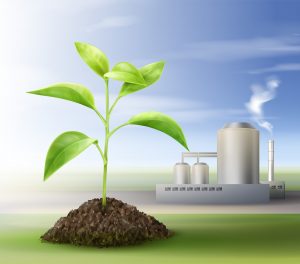

The best part about biofuels is all of these are manufactured from wastes and organic waste that are generated within our own country, within our own surroundings and it also decreases emissions.
It’s been very strange that biofuels have always been the prodigal son and never reached their potential. The EV, Solar which is considered a glamorous renewable energy source has gotten more attention.
While biofuel, the fuel that can be manufactured from organic waste, can fit into the existing applications with no change to the engines.
How is Biofuel produced?
Traditionally it was manufactured from crops like jatropha that Dr. Abdul Kalam had advocated. But those crops were not able to sustainably replace fuels because they required a lot of lands. This raised the question of whether land should be diverted from food to fuel.
Second-generation biodiesel is not about using the land but leveraging existing feedstocks. People were able to manufacture it from byproducts of vegetable oil refineries.
Now we’re going more towards the third generation and I’m glad that technology is evolving, where people can manufacture literally from the waste of vegetable oil refinery.
The fourth generation is where any organic waste or any municipal waste can be converted into biofuel.
Municipal solid waste or food waste that comes out of hotels can be converted into a bio CNG. This bio CNG as a product is better than LPG in terms of burning capacity, calorific value, and all those aspects that are used for burning and cooking.
Bioethanol is manufactured currently in India from the waste of sugar mill industries. They can also be manufactured from any organic waste – all wood waste can be converted to bioethanol. Then there is bio coal which is again from organic waste and municipal solid waste, that can replace coal.
There are different types of biofuels, biodiesel replaces diesel, a bio CNG generally replaces LPG, and petrol is replaced by bioethanol.
Delhi is facing a huge pollution crisis and it is majorly due to stubble burning. That waste could easily be used for biofuel production. Could you please elaborate more on that?
I have heard that some states in India like Uttar Pradesh are discussing converting this into bio CNG. They’re making deals with the farmers to give those stubbles and the government will produce bio CNG and give them free power or something like that.
It’s sad that Delhi which already has very high pollution has to face this just because of burning down waste that can be converted into a much more efficient source of energy.
That is where your company comes in… Can you tell us more about Buyofuel?
I’ve been in the biofuel sector for more than 12 years, I was inspired by Dr. Kalam and then got into this sector. Over the years, I think we’ve grown significantly, as the awareness about biofuels has grown but still the industry didn’t grow, primarily because people were not able to access biofuels.
I’m glad that you guys are doing this because people don’t even have awareness about biofuels. While fossil fuel like diesel or petrol is available just down the road. People didn’t want to take extra effort and access something that is not close to them. That’s why we brought this platform called Buyofuel.
We network with all biofuel manufacturers in such a way that people should be able to order biofuels right from their homes. We are still not B2C but we are B2B, we help large business consumers including large transporters avail biofuel through a mobile or a laptop close to them.
In doing that we also saw that the biofuel manufacturers had an issue availing feedstock for manufacturing. There is no structured way of logistics for the organic waste to reach the manufacturer and so a lot of this goes to waste.
In 2018 the government of India launched RUCO. In that, they mandated that used cooking oil in India should be given for biodiesel manufacturing. The reason for this legislation was because a major part of used cooking oil was primarily going for adulteration. While this can be used for biodiesel manufacturing and there was no organized way that the biodiesel manufacturers could source this.
That’s why we thought we should also do that part as well through our platform. Not only biofuels be easily accessible to fuel consumers but organic waste should be easily accessible to biofuel manufacturers.
We are trying to connect those pieces in such a way that the organic waste goes seamlessly from the source to the biofuel manufacturer, who converts it into biofuel and the biofuel gets consumed by large fuel consumers who can access it easily. That’s what we are in simple words trying to do with Buyofuel.
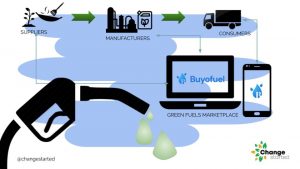

In your experience, what does the Biofuel Ecosystem look like?
It is still at a very nascent stage, even large companies don’t have enough awareness about biofuels; they have heard a little. The first challenge is to create that awareness, break that mystery, and make biofuel accessible.
The ecosystem building is a tough part, once the ecosystem is built things will move automatically. The ecosystem building is what we are doing.
We are educating hotels, farmers, farm communities, and other players. For example, the timber industry throws off so much sawdust and wood waste that can be used for biofuel. Food waste from restaurants is thrown away, and that food can go into manufacturing bio CNG. There’s a lot of scope for the circular economy here, people can convert food waste into bio CNG and consume that in place of LPG.
We’re very happy with the response that we’ve seen in Tamil Nadu, Karnataka, and Kerala where we are rolling it out.
Once the ecosystem builds, the awareness will improve, and then that itself will ensure the sale of biofuel increases tremendously.
The larger goal is to ensure that at least 30 to 40 percent of our energy gets substituted by biofuels within India – that’s the goal which we are moving towards.
Technology is playing a huge role in connecting the pieces…
Yes, it is a complete technology platform, we’ve digitized end to end to ensure that there is a lot of transparency in the process.
Earlier there was a lack of transparency in the sector because it’s primarily unorganized. People had no clarity on whom to pay, where to pay, whether that payment was safe, or the quality of biofuel.
We kind of demystified with networks, with Bureau Veritas, and labs to ensure that biofuels are quality assured biofuels. Similarly, we ensure that there is complete transparency in making payments. We completely organized the B2B transaction ensuring that the order gets auto-generated and it is easier for people who don’t have their own ERP system.
We have simplified the system so that anybody with a basic level of understanding of computers/smartphones can become part of the ecosystem.
More on the benefits for the three key stakeholders
Suppliers:
Let’s start from the source where the organic wastes are generated. To me, that is the largest beneficiary because it was basically thrown out or sold for a really small value. We see a lot of people in the source sector who want to join our platform because they see value addition to something that they thought was a waste.
Something that is almost a zero value, gaining a decent value. Not only in terms of money, people see it as adding value to society which is also a tremendous pull that we see.
Manufacturer:
As the entire organic wastes are all spread out, the manufacturer didn’t have enough access to them. That’s the reason why biofuel manufacturing capacity in India was always low. Biofuel manufacturers in India always found it difficult to be viable and none of them were able to scale up.
Now availing that sources are becoming easy and it helps them to focus on what they need to do – that’s on R&D and increasing their production capacity while sourcing is kind of easily taken care of through us.
It helps them decrease their cost of purchase because otherwise they networked to a small sector around and were paying high prices. Now it becomes easier for them to expand and also helps them avail a large source of raw materials.
Consumers:
Thanks to favorable policies by the government, the cost of biofuels comes is almost 20 percent lesser than fossil fuel prices. There’s always this debate, India has higher diesel and petrol prices but as a renewable energy supplier, I am glad that it is the case.
In India, irrespective of the emission benefits even the largest corporates will ask what’s the monetary benefit. The monetary benefit of 10 to 20 percent is a significant pull for them to move towards biofuels. Additionally, they have easy access to a large base of biofuel manufacturers, demystified with quality assurance, and an easy secure payment mode.
In summary, the benefits for the biofuel consumer are
- Saving on fuel costs
- Emission reductions for the consumption of the same quantity of fuel and
- An easy way of accessing quality assured biofuels along with easy and secure payment
How can a normal consumer like me take advantage of biofuel?
Although we’re B2B, we’re looking at it from the consumer angle. We also want normal consumers to slowly start availing themselves of biofuel. Anyone wanting 50 liters, or 10 liters should be able to access it.
Again in this direction, the policy-making has been very good over the last 3 to 4 years. Government has kind of deregulated this entire thing and biofuels can now be traded and retailed openly. That was not the case till 3 to 4 years back. Now people can set up retail bunks of bio CNG, biodiesel, and all that.
We are looking to build approved retailers. We are experimenting with that in Tamil Nadu, Kerala, and Karnataka and already have a few retailers in this space, people can go to them and fill the biodiesel, bio petrol, or bio CNG for their application.
Unfortunately, a lot of spurious traders used this opportunity and started peddling, mixing various types of fuel, and then selling them as biodiesel. This has been going on rampantly over the last two years since the time the government opened up a retailing of biofuels.
That’s another reason why we thought of Buyofuel as a platform, which gives people transparency in what they were buying.
There had to be a quality check and quality assurance for all biofuels that go to the retailer. People who are filling from those approved retail stations could know that they are filling biodiesel.
As more and more retailers come into play, the production capacity of biofuel increases, and retailers have access to these types of biofuels.
As people become more aware of biofuels, they can fill them in their cars and we should be able to consume these biofuels.
Can normal cars use biofuel?
Technically, any normal diesel engine can run on biodiesel. We had multiple experiences running 100% biodiesel-run engines in the middle east, Malaysia, and Singapore.
In India, a lot of my clients who started by blending it with diesel in their own application – now use 100% biodiesel.
Although we don’t recommend that because biodiesel is a vegetable product, in cold weather there’s a different type of functioning. At least a minor component of diesel around 20 to 30 percent in your tank is always better. Technically 100 biodiesel can be run in all diesel engines without any issues – in cars, buses, and trucks.
How about the impact of biofuel on the environment?
When we speak about emissions, carbon dioxide emissions are 50 percent lesser than normal diesel, sulfur dioxide emissions are 100 percent lesser, and nitrogen oxide emissions might be slightly higher because of the vegetable oil.
This is only measuring the emissions, the moment you do a life cycle emissions it’s net-zero. The best thing about biofuels is unlike an EV this is basically net-zero emissions.
How has traction been so far?
We launched our product in August 2020; it’s a corona baby. We’ve been working on this platform for one and a half years, it took us a while to do the technology part of it.
We’ve been very happy with the response. We have close to 220 to 230 registered users already on our platform. We are primarily towards Tamil Nadu, Karnataka, and Kerala.
We have almost all the biodiesel manufacturers down south. From a biodiesel supply capacity per day, we can supply more than five lakh liters of biodiesel already on our platform.
Every day we have 10 lakh kg of organic waste supply sources already on our platform. People who can supply more than 5 lakh kg per day of biomass coal are already on our platform.
From an ecosystem point of view, we’d like to add more and more consumers that’s when the sale transactions increase. Currently almost half of our platform is for manufacturers. The traders and consumers are the remaining half. Ideally for more sales to happen for biofuels we should have consumers two times more than the manufacturing capacity that we have. For example, if we have 5 lakh liters of biodiesel supply capacity we should ideally have 10 lakh liters of consumption on our platform.
We are on the way, by adding more and more consumers, more transactions will also happen.
What are your plans for funding, and future goals?
We are bootstrapped as of now, so we are very actively looking for funding. A technology platform of this type needs funding to scale up and needs investments to actually reach its potential of spreading across India.
We are trying to move in these three states (Tamil Nadu, Kerala, and Karnataka) and then look at south India and then move towards western India and then north and east – that’s the idea. Considering that the west and south consume a major part of the energy for India and then we’ll move from the west towards the north and then towards the east. It’ll be great if we can extrapolate this model to the other parts of the emerging economies.
We’re also looking to network with large fuel consumers and replace their fuel with biofuels and manage their fuel consumption.
What is your opinion on the Industry and Biofuel sector?
There are three aspects that excite me about this entire industry, for now.
One as I said we’re using a technology platform, ten years back that wouldn’t have been possible. Mobile and internet penetration has played a tremendous enabler and will play a significant role in the way biofuels get accessed.
Second is the technology in the production of biofuels that has evolved significantly. Ten years back when I started my first biodiesel unit in Tamil Nadu, the technology was so rugged. Bio CNG has evolved significantly so that you can manufacture from any municipal solid waste and the conversion efficiency is increasing rapidly. Then there is the concept called biorefinery, from organic solid waste and municipal waste, people can manufacture all types of fuels like diesel, petrol, gas, lubricants, and industrial fuels.
Third is what you are doing and what people like you are doing – educating and creating awareness. The young kids are extremely environmentally conscious and mindful of swachhata (cleanliness) and better waste management.
All these three put together I see a tremendous future for biofuel.
Tell us about your journey…
I am a mechanical engineer from Pondicherry Engineering College and was working in the HVAC and engineering sector. I’m fortunate to have Dr. Abdul Kalam as the President of India at that time and I got inspired by him. He was a tremendous advocate for biofuels that’s how I got pulled to this concept of biofuels.
Then, my father being a farmer’s son, wanted to also do something for agriculture. Our initial idea was to cultivate these crops for biofuels. We didn’t see a lot of takers for that, then we ourselves decided to convert that into biofuels. That had its own problems as the land to fuel ratio was not working at all. The scale that fuel requires is very high while a crop can never match that kind of scale and you’ll be wasting so much land. That’s when we started researching on byproducts of refinery-based biofuel manufacturing.
Another challenge in those days was the subsidies given to fossil fuels in India for unexplainable reasons, hence it was always difficult for a biofuel to match up with fossil fuels.
Then in the 2014 crude crash, demolished the entire biofuel sector in India. We had to shut down the factory and associated with biofuel in the middle east and southeast Asia. This experience in the middle east and southeast also gave me a lot of perspectives. People were much more forthcoming to use biofuels in these geographies and organic wastes were much more easily available.
We wanted to see how this can be replicated in India that’s how the idea of Buyofuel came and I happened to meet a few people.
A couple of my friends were into technology and developing apps and doing technology solutions for SMEs. We had a very interesting meeting with the person who was doing organic waste to biodiesel work in Kerala. I think our vision and interests matched and we all wanted to do something for society.
We thought this was the right time, technology was mature enough and people’s awareness around waste management was improving and that’s how Buyofuel came.
What’s your personal connection with nature?
In our growing up days, we were not that environmentally conscious compared with the kids in the current times.
I will be very honest, in our times, we did not have this concept of swachhata (cleanliness) and we never knew this concept of biofuels. All that was kindled to me by Dr. Kalam.
My father always connected with the environment & nature. My connection with the environment only started with the biodiesel plant. That time I released how farmers inherently connected with the environment, they protect nature in every other aspect. After that, I also started appreciating our traditions and their relevance.
Initially, I was not, but now I am extremely conscious about it and gradually it is increasing all around us, and that is a very welcome aspect.
You can watch the full conversation here!!!


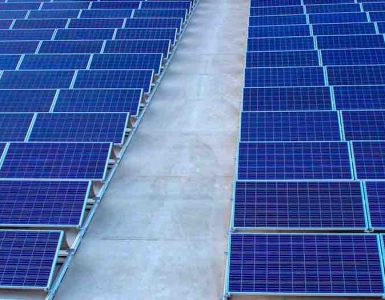
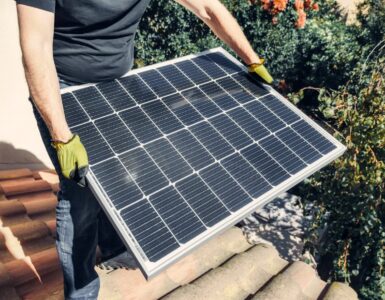
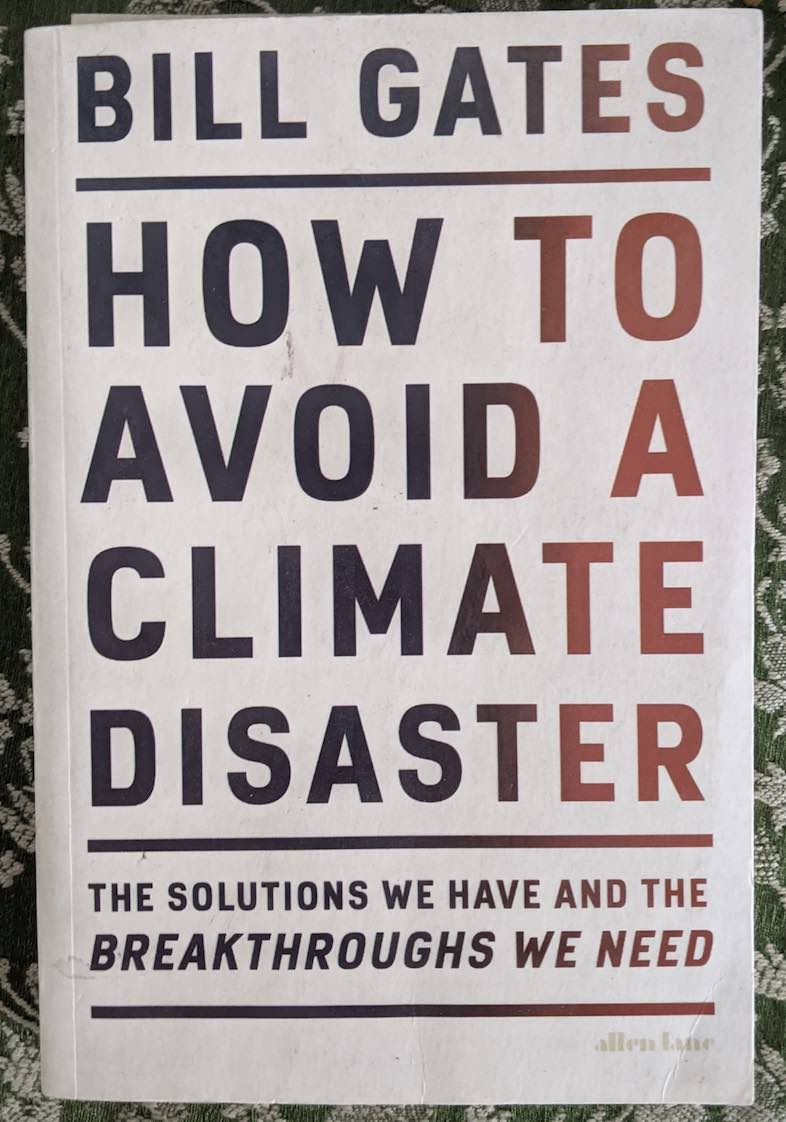

Add comment